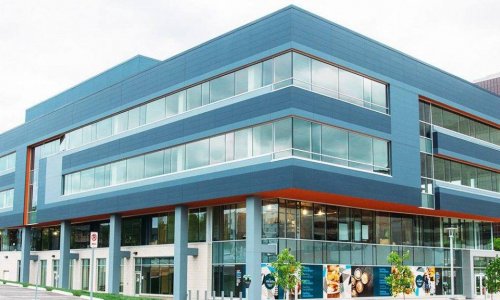Strengthening the Research and Education Network
Microscope designer Leica Microsystems and the European Molecular Biology Laboratory (EMBL) signed a corporate partnership agreement today whereby Leica Microsystems becomes a founder partner of the EMBL Advanced Training Centre scheduled to be completed in September 2009.

Besides its financial involvement, the company will provide EMBL with Leica systems and will support events for the international scientific community. In return, Leica will be granted access to the first-class facilities of the molecular biology research institute to run product and application training courses.
“We are greatly looking forward to this further consolidation of our cooperation with EMBL and its renowned experts. It will bring us closer to trends and future developments. The collaboration with one of the leading international life sciences institutes and access to its new technologies will provide input into the development of our technology and products,” said Dr. Stefan Traeger, Head of the Life Science Division of Leica Microsystems. All parties involved will benefit from stronger links with the scientific network and closer contacts with international students and research scientists.
"The support of Leica Microsystems is an important step in the creation of a central training and conference centre for the Life Sciences in Europe. We are pleased to welcome such a renowned company as our partner and are looking forward to autumn 2009 when constructions will be completed and the Advanced Training Centre will open its doors," said Professor Iain Mattaj, EMBL's Director General.
The European Molecular Biology Laboratory is a basic research institute funded by public research monies from 20 member states (Austria, Belgium, Croatia, Denmark, Finland, France, Germany, Greece, Iceland, Ireland, Israel, Italy, Luxembourg, the Netherlands, Norway, Portugal, Spain, Sweden, Switzerland and the United Kingdom) and associate member state Australia. Research at EMBL is conducted by approximately 80 independent groups covering the spectrum of molecular biology. The Laboratory has five units: the main Laboratory in Heidelberg, and Outstations in Hinxton (the European Bioinformatics Institute), Grenoble, Hamburg, and Monterotondo near Rome. The cornerstones of EMBL’s mission are: to perform basic research in molecular biology; to train scientists, students and visitors at all levels; to offer vital services to scientists in the member states; to develop new instruments and methods in the life sciences and to actively engage in technology transfer activities. EMBL’s International PhD Programme has a student body of about 170. The Laboratory also sponsors an active Science and Society programme. Visitors from the press and public are welcome.
19.12.2008





